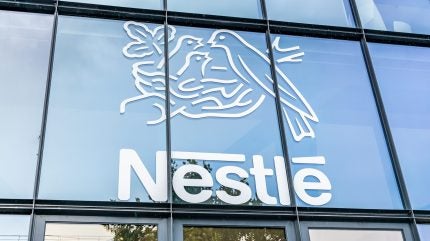
A judicial investigation has reportedly been opened in France into Nestlé’s local water business and its peer Sources Alma over the treatment of their bottled waters.
A judge from the public health division of the Paris judicial court has opened an investigation, a judicial source informed local outlets Le Monde and Radio France yesterday (13 February).
Nestlé’s French water arm told Just Drinks: “We do not comment on ongoing legal proceedings. And we will continue to cooperate with the judicial authorities.
“We also reaffirm that the food safety and quality of Nestlé Waters France’s natural mineral bottled waters have always been guaranteed, and their unique mineral composition is and has always been as described on the labels.”
When contacted by Just Drinks, Sources Alma said: “To date, we have not been informed of the complaint filed by Foodwatch nor of the opening of a judicial investigation.”
The reported opening of an investigation follows the re-submission of two complaints against Nestlé Waters France and Sources Alma by non-profit group Foodwatch last year, which included accusations of “deception”.
Foodwatch said yesterday that it “welcomed the opening of a judicial investigation” by the Paris judicial court.
In September, Foodwatch re-submitted its accusations against both companies, “this time with civil action in Paris”.
The group first filed complaints against both groups with the Paris Judicial Court in February, alleging nine offences by both companies.
At the time, the NGO said the Swiss heavyweight’s bottled-water business and Sources Alma had “intentionally” and “illegally treated their bottled waters and then sold them without informing consumers”.
The move followed on from Nestlé admitting to its violation of French laws in the way it treated bottled mineral water against contamination in January last year.
An inquest was later launched by prosecutors at Épinal law courts in north-eastern France. The two investigations concluded in September, with Nestlé being fined €2m ($2.2m) for breaching French mineral water laws and engaging in illegal drilling.
Foodwatch condemned the court’s decision at the time, having argued that, by allowing Nestlé to enter a Public Interest Judicial Agreement (CJIP), prosecutors had effectively let the company off the hook. The NGO’s director of public information Ingrid Kragl then said that the move was “a scandalous decision that sends a very bad message about the climate of impunity”.
She added that, as the CJIP agreement solely concerned violations of environmental regulations, it did not address “the offences of deception, risk to health, etc., which are the subject of our complaint.”
In its complaints, also submitted in September, Foodwatch claimed it had evidence that showed Sources Alma had been illegally using iron sulphate to bring down arsenic levels at its Vichy Célestins and St-Yorre water production sites since the 1980s. It also said it had proof that the Cristaline water producer was illegally adding carbon dioxide to its drinks.
Kragl also said the group’s “new complaints are more muscular because they contain new revelations and facts”, including the results of an European Commission audit report released in July, which found “serious shortcomings that impinge on the implementation of the official controls system” for natural spring and mineral waters production.
Commenting on the reported opening of a new judicial investigation, Kragl said it was “excellent news”.
She added: “Justice must now shed full light on the responsibilities in these cases of massive fraud, both at the level of companies and authorities. Let us recall that these illegally filtered bottles of water have been marketed throughout the world, in defiance of European regulations and consumers.”



